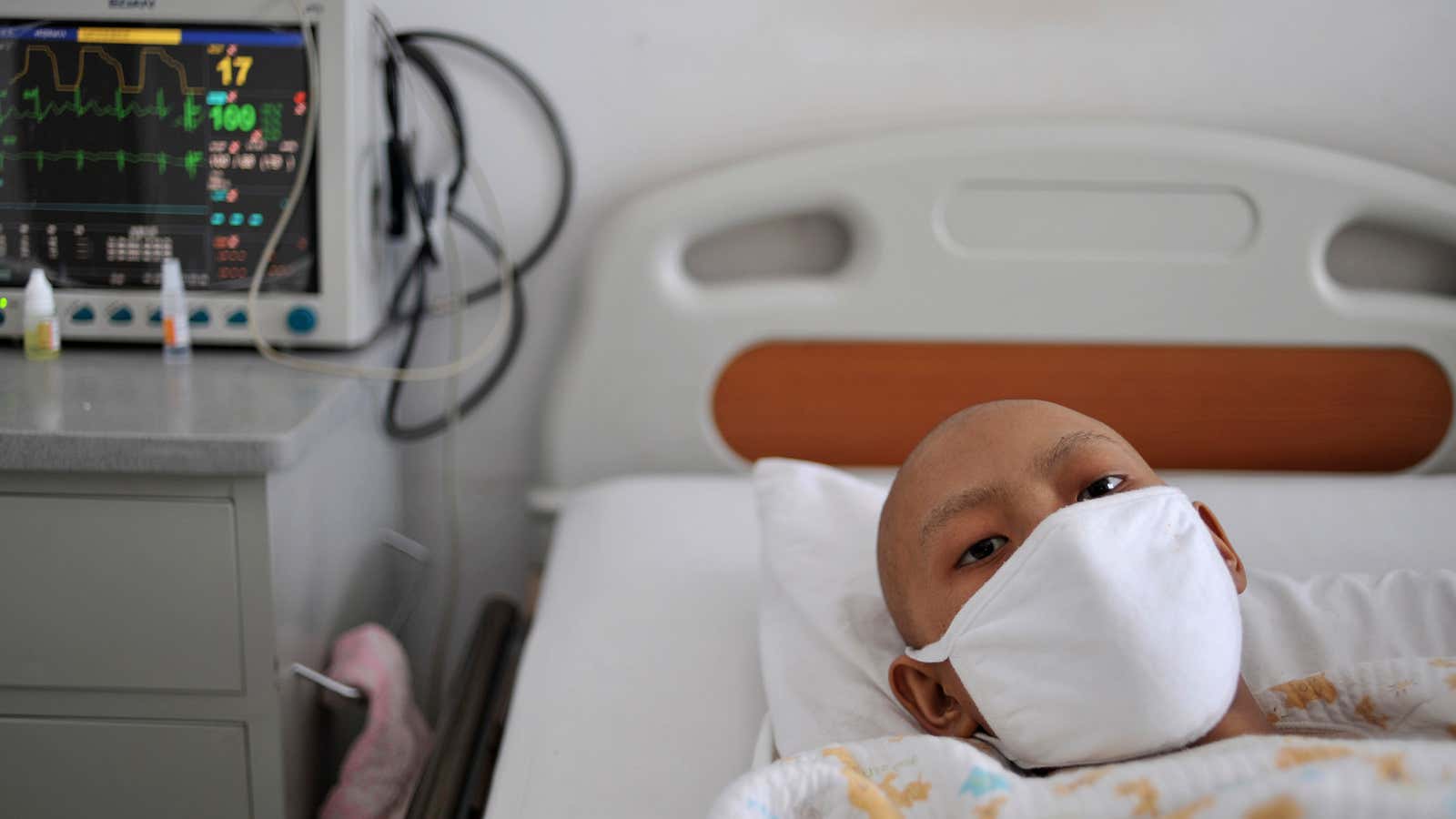It’s hard to treat most types of cancer. Promising new treatments sometimes require a little leniency on the rules. Which is why the US Food and Drug Administration (FDA) has allowed a cancer trial to continue, even though three of the patients in it have died.
Juno Therapeutics, a Seattle-based biotech firm, had been running a trial of an experimental drug to treat a form of leukemia. The drug, JCAR015, is a form of immunotherapy: It involves extracting some of a patient’s own white blood cells—the soldiers of the immune system—modifying them so they can target specific cancer cells, and then re-injecting them into the body.
JCAR015 passed initial safety tests, and patients who’d taken it seemed to see their cancer regress and remain so. So Juno began a larger trial. On July 7, however, the FDA brought it to a halt after three patients died of brain swelling, caused by excess fluid in the head. Patients rarely die in clinical trials, so such suspensions are necessary to avoid any more harm.
Juno says the deaths were due to an unfortunate and unexpected reaction between the modified blood cells and a chemotherapy drug the patients were getting. Such drugs are often given in combination with other therapies, because they attack the cancer by a different route, increasing the chances of success. In this case, though, the result was fatal for some of those who got the drug.
Juno proposed dropping the chemotherapy drug. The FDA agreed, and within three days of the suspension, it allowed the trial to start again. Re-evaluations of this kind can often take more than 30 days.
Though FDA hasn’t clarified why it fast-tracked this review, one reason might be to do with the promise of immunotherapy. Being able to harness the body’s own immune system to do the hard job of killing cancer cells and sparing healthy ones is an intuitive and attractive concept, but it is hard to implement. In the past five years, however, things have moved ahead rapidly in the field, as can be seen in this chart of published cancer-immunotherapy studies.
There are many different ways to turn the immune system against cancer, such as making immune cells more aggressive, flagging cancer cells for destruction, or genetically engineering a patient’s immune cells to directly target cancer cells.
JCAR015 employs the latter technique. However, it doesn’t work on everyone. And the only way to answer questions about its long-term safety is through trials that may put patients’ lives at risk.
Fortunately, even if JCAR015 fails, Juno has a several other therapies of this kind in the works for various forms of blood cancer, as do other pharma companies, including Novartis and Kite Pharma. A Juno spokesperson previously told Stat that it expected to have the first immunotherapy approval for clinical use in the US by 2018.




